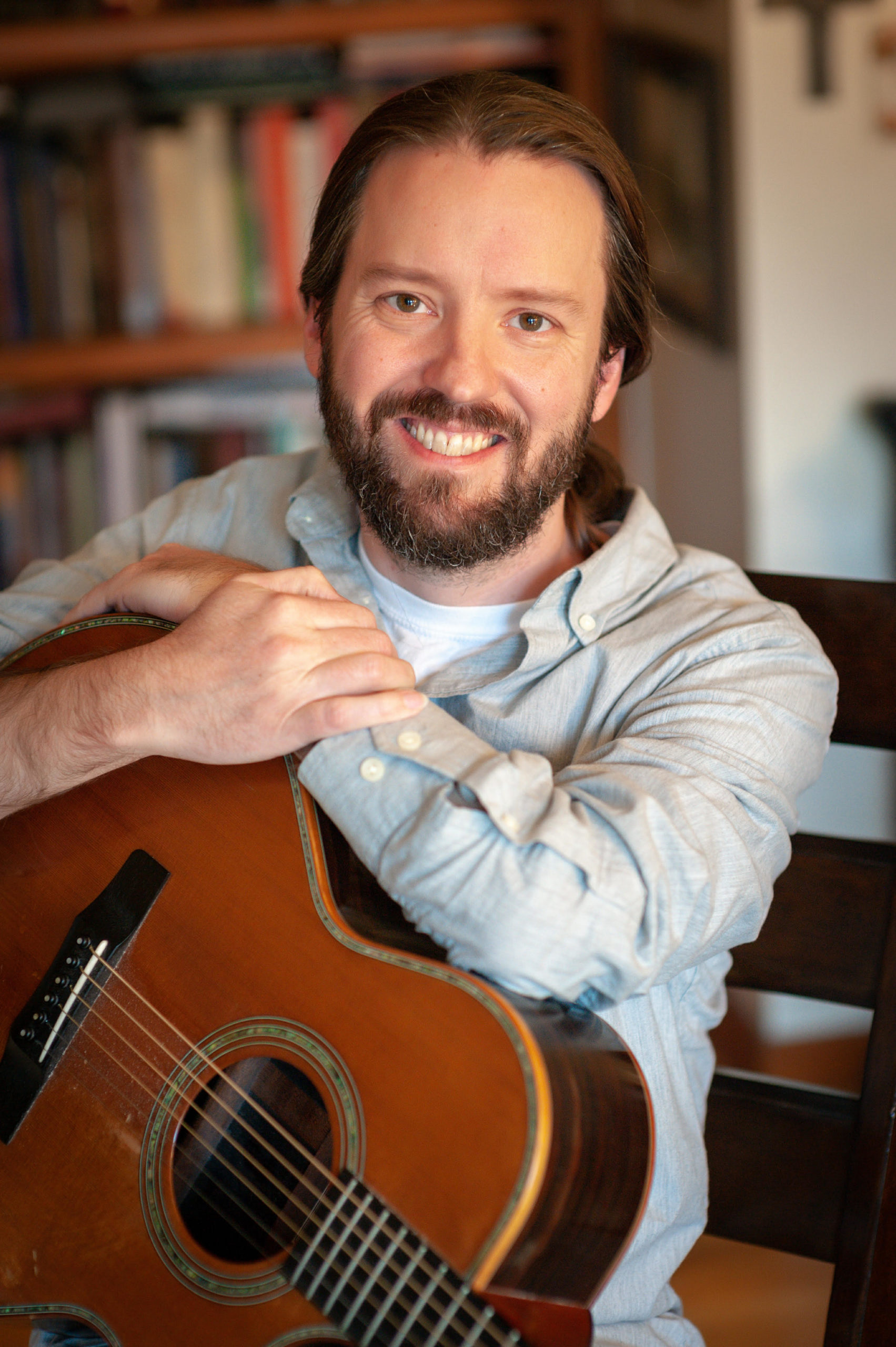When I lay down
When I lay down, then I awaken –
Shaken from narcotic dreams
That deal in bread of devil’s making,
Those lotus meals in desert places,
As stones still ponder better praises.
When I lay down, then I awaken
To wander tracing wayside paths,
With news and action elsewhere breaking;
While spectacle and fame win crowds,
The hidden meek sleep in their shrouds.
Where they laid down, they will awaken
Who yield in Adam’s field to sleep.
See every earthly kingdom shaken;
While the beatific mourner sings:
The widow’s mite will measure kings.
Shaken from narcotic dreams
My Grandmother Mal had a friend, Mrs. Theopa (great Southern name, right?), who was narcoleptic. I can imagine the two of them on their occasional (and somewhat clandestine) drives across the county line to the liquor store: Theopa conking out behind the wheel for a moment or so before re-awakening. The two little old southern belles would continue on their merry way.
I was today-years-old when I noticed the connection between narcolepsy and narcotics; the “narc” part of the word has to do with sleep, unconsciousness, numbness. That rang true for me personally; some people lash out when stressed, but I know I’m overwhelmed when I find myself crawling under the sheets in the middle of the day because it seems like the only way to catch a break. Josef Pieper says,
“To see things is the first step toward that primordial and basic mental grasping of reality, which constitutes the essence of man as a spiritual being.”
But when I’m in pain, I can’t bear to look. I close my eyes.
Jesus’s temptation to change stones to bread may be a temptation to put his pain to sleep. To invoke a kind of narcotic state, rather than feel the hunger and the pain that his ministry would require of him.
When I lay down, then I awaken
Right now the church is in the middle of the season of Lent, a time when we rehearse our story together by enacting Jesus’s 40 days of fasting and temptation. Interestingly, Jesus was rehearsing his people’s story, too, by enacting their 40 years of wandering in the wilderness. Humans are narrative creatures, inhabiting a living drama. Tolkien says, “The incarnate mind, the tongue, and the tale are in our world coeval.” Co-eval means of the same age (just as medi-eval means middle ages). In other words, as long as we’ve been around, we’ve been telling stories; and as long as we’ve been around, we’ve been trying to find our place in the story God is telling, this drama the Trinity is living and inviting us into.
Even Jesus has to fight to hold onto his place in that Story; each temptation begins with the devil undermining the Father’s words about the Son: “If you really are the Son of God…”
There’s no shortage of alternate narratives; Penelope has to fend off many false suitors while she waits for Odysseus to return.
The hidden meek sleep in their shrouds
A book I return to every few years is “Lilith” by George MacDonald. I don’t want to spoil the story for you, but sleep is one of main themes at play in the narrative. The main character, Mr. Vane, is being asked to lie down and sleep on a stone bier in a vast, cold hall called The House of Death. But throughout the story he refuses because he feels compelled to go out and do impressive things. Finally, after a long string of bungled heroics, Mr. Vane finally submits to the summons to sleep:
“The fourth night I seemed to fall asleep, and that night woke indeed. I opened my eyes and knew, although all was dark around me, that I lay in the house of death, and that every moment since there I fell asleep I had been dreaming, and now first was awake.”
Just as there is a sleep that closes our eyes and numbs us, there is a sleep that opens our eyes and revitalizes. Christianity has always said that before we can really get going with real life, we must relinquish it. The baptism of death is always the paradoxical point where the vitality of new birth begins.
While spectacle, great actions, and all that is network-newsworthy crowd into the frame, we slip away into the silken sleepwear of the Font and are clothed in Christ’s death. While daredevils leap from temple rooflines to the whipped-up applause of fickle, spectacle-hungry crowds, Christ wanders off to the sidelines shrouded in ignominy.
I remember a mentor chiding me in my early twenties when I was sure God was calling me to be a famous musician: “God calls no one to be famous,” he said. Is the second temptation that Jesus use the ways of the world to save it? Would the end justify those means? Apparently not. Jesus may work while there is daylight, but he doesn’t seek the spotlight. If you’ve ever stood in the light of a spotlight on a dark auditorium stage, you know how hard it is to keep from losing sight of the people around you.
See every earthly kingdom shaken
I’m wondering whether the three stanzas of the poem above, which are meant to follow Jesus’s three temptations in the desert, might also align with the three transcendentals—beauty, goodness, and truth? I’ve been reading Hans Urs von Balthasar lately, and he puts beauty first, which invites us into an approach via goodness to truth.
As creatures we encounter the world through our bodily senses. Bread makes an appeal as a creaturely beauty, but if it’s separated from its analogical transcendent reality—every word that comes from the mouth of God—beautiful though it is, it is reduced to a means of death. Bread and eating are analogies pointing to the real thing, God’s word, as is every beauty.
Jesus protects beauty as a blaze on the trail to God by refusing to settle for beauty as a destination in itself.
I grew up with a Mom who wouldn’t let me eat candy in the afternoon because I’d spoil my dinner.
The second temptation is about goodness, which is the right way of doing a thing. Throughout the Gospels, Jesus seems to detest being ‘put on the spot’ as the Pharisees demand he put on a show for them. Who hasn’t felt the creeping feeling that our friends love us for our performance? Do they love us for who we really are? Our Lord seems almost to relish disappointing the demands of the crowds for holy acrobatics. Look for it in John chapter 6. In the end, the means are just as important as the end. For Jesus, any old way won’t do, when it comes to saving the world.
For us, absolutely anyone can walk the path that ends in the Beatific Vision, but there is a definite path, a Way.
Lastly, as a final shortcut Jesus is invited to worship the Devil. But that would be to involve himself in a lie. Lying is anti-reality. For God to worship Satan would unravel reality itself. Truth is not ultimately conceptual, Truth is a Person, and the appeal of beauty calls us via goodness to the final reality of being enfolded into the Truth, the very Life of the Trinity. Jesus protects that hope for us by feeling his hunger, committing to goodness, and refusing to participate in a lie—no matter the cost.
The widow’s mite will measure kings
My friend Chris wrote a song about the widow who gave her last pennies. A weary Jesus, frustrated and exhausted as he makes his way through a world of opposition to God’s way, sees this woman. She is socially invisible, powerless, and full of faith. And she has no idea how deeply her little act has encouraged the Lord.
Stories like that become the weird measuring sticks of the Kingdom. Measly offerings, starving messiahs, spotlight-shy Gods, and podunk parentage become paradoxically paradigmatic of feasting, heavenly glories, and eternal inheritances. The humble are exalted, the proud laid low. Or as one of my favorite songwriters Andrew Peterson says, “All the maps were drawn / but the maps were wrong / the stars spin around another sun.”
It is that “other sun” who calls to the sleepy to “Keep watch!” and to the sleepers, “Awake!”
The featured image is courtesy of Lancia E. Smith and used with her glad permission for Cultivating and The Cultivating Project.
This path and pond are particularly beloved because they are now a dedicated nature preserve in the back of The Kilns in Headington Oxfordshire, but they were once the exploring grounds for C.S. Lewis and his brother Warnie. Tales have it that this area was inspiration for Narnia.
Matthew Clark is a singer/songwriter and storyteller from Mississippi. He has recorded several full length albums, including a Bible walk-through called “Bright Came the Word from His Mouth” and “Beautiful Secret Life.” Matthew’s current project, “The Well Trilogy,” consists of 3 full-length album/book combos releasing over 3 years. Each installment is made up of 11 songs and a companion book of 13 essays written by a variety of contributors exploring themes around encountering Jesus, faith-keeping, and the return of Christ. Part One, “Only the Lover Sings” is available both as an album and as a companion book.
Matthew also hosts a weekly podcast, “One Thousand Words – Stories on the Way,” featuring essays reflecting on faith-keeping. A touring musician and speaker, Matthew travels sharing songs and stories in a van called Vandalf.
Leave a Reply
A Field Guide to Cultivating ~ Essentials to Cultivating a Whole Life, Rooted in Christ, and Flourishing in Fellowship
Enjoy our gift to you as our Welcome to Cultivating! Discover the purpose of The Cultivating Project, and how you might find a "What, you too?" experience here with this fellowship of makers!


Add a comment
0 Comments